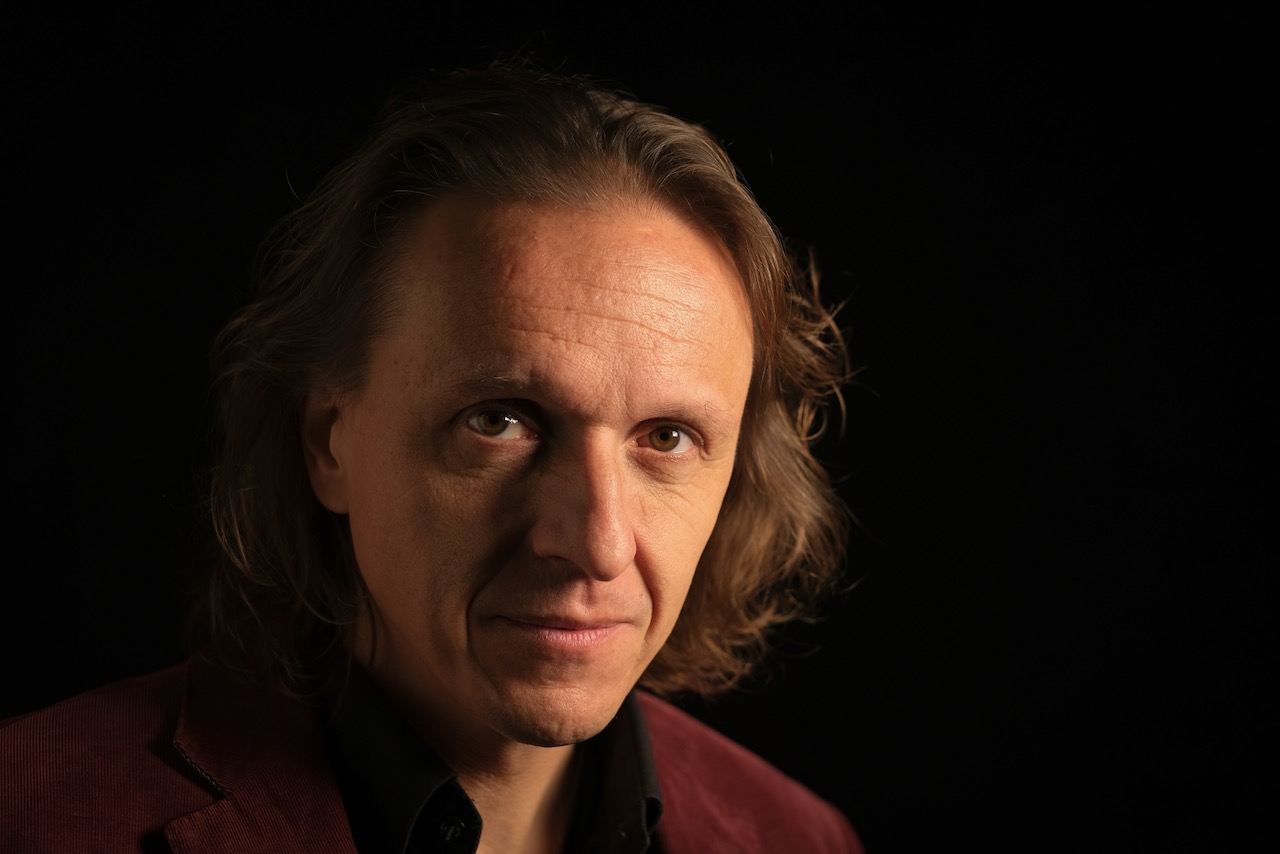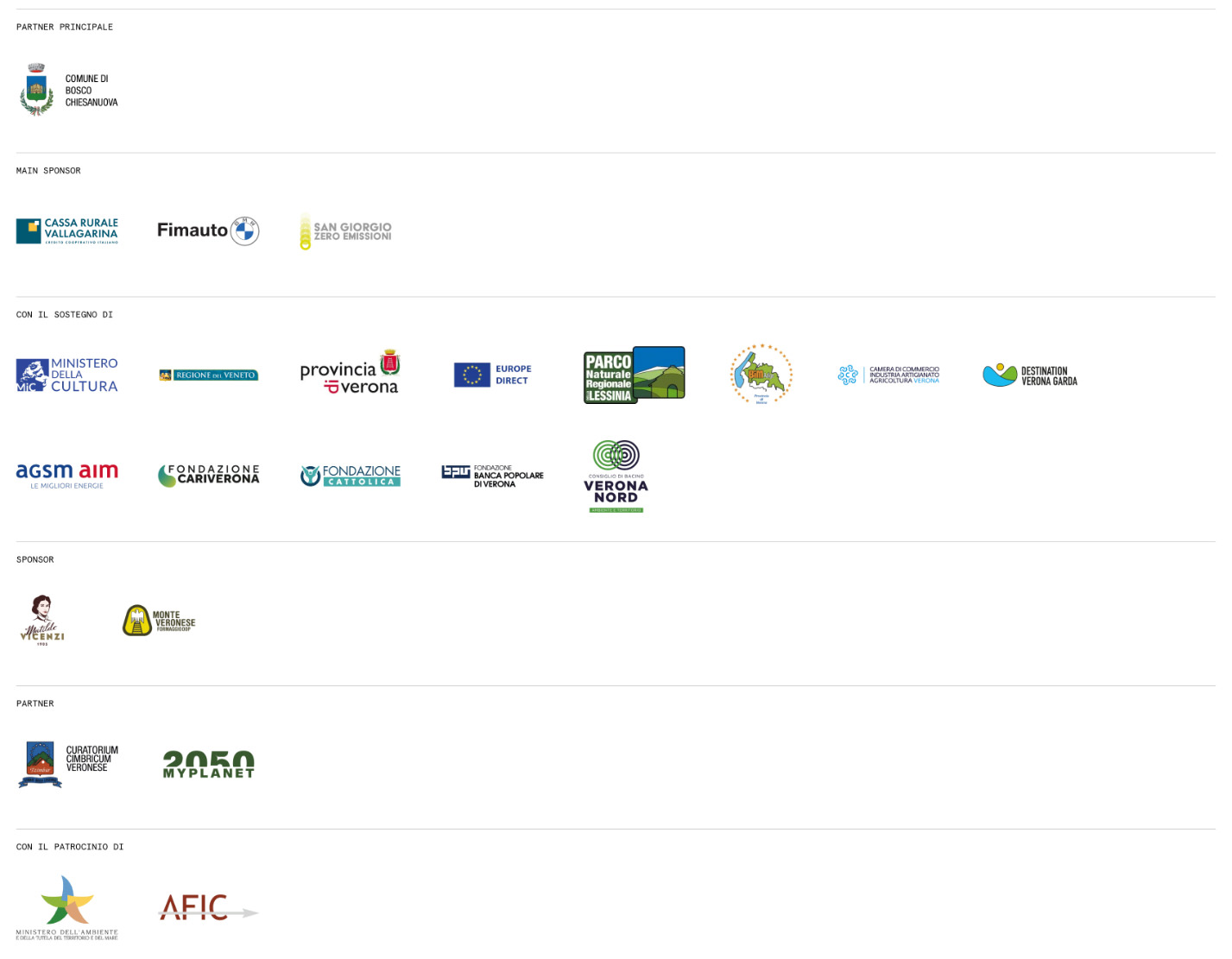TRAJECTORIES

Over nearly thirty years, the Film Festival della Lessinia has developed the ability to sustain an international vision as well as firm roots in the land where it was born and matured. The twenty- ninth edition is emblematic of this journey. It is the largest in terms of film program numbers (1,004 films submitted from 107 countries, with a program that presents 90 films from 40 countries with 27 Italian premieres, 4 of these world premieres) and one of the richest in terms of events dedicated to Lessinia. This characteristic has contributed to creating the personality and distinct identity of a Festival that has never forgotten its inspiring mission: the valorization, through cinema, of a mountainous land that has been a haven for populations, cultures, and languages, and a laboratory for a very original and solid identity in the alpine context. Thus, just as the mountains of Lessinia were landing places for the so-called “Cimbri”, migrant populations who came from the north, so the Festival opens this edition with thirteen rare, short films that capture the gaze of northern European travelers upon the Italian mountains, in an event dedicated to the “Grand Tour”, created with the Cineteca of Bologna and the Cinema Museum of Turin. This gaze is further articulated in the events of the 2023 thematic tribute to “holiday-making in the mountains”. Within this theme, the Festival presents a retrospective that opens with Luis Trenker’s masterpiece, Liebesbriefe aus dem Engadin (Love Letters from the Engadine), to arrive at Ruben Östlund’s Turist, passing through a tribute to one of the illustrious “holiday-makers” of Bosco Chiesanuova, the writer Antonio Fogazzaro, to whom the Festival dedicates a round-table discussion and the screening of the film Piccolo mondo antico (Old-Fashioned World) by Mario Soldati. To Bosco Chiesanuova, once defined as “The Pearl of the Lessinia Mountains” for its stately late nineteenth and early twentieth century villas, the Festival is dedicating an exhibition and a film by Giovanni Montagnana, Nel Bosco si sentono le voci(Voices in the Woods), which brings together precious fragments of the town’s family archives.
It is tempting, year after year, to look for common thematic and stylistic currents among the films chosen for the programme. No matter how hard you try to find them, you will end up concluding that the 2023 selection presents a vast range of subjects and genres, as well as geographical origins, which follow equally various and stimulating trajectories. So, let’s try to trace some of the themes that will recur in different ways. The portraits of female protagonists are among the most emblematic of the documentaries in competition, from those of the three Ukrainian women in the film Drei Frauen (Three Women) by Maksym Melnyk, to the tender dialogue with the mother of Mamá from the Mexican director Xun Sero, to the Armenian women whose husbands are far away for work in It Takes a Village… by Ophelia Harutyunyan. Adolescents in their journey of growth and discovery are the protagonists above all in short films. Unforgettable is the face of the protagonist of Ramboy by Matthias Joulaud and Lucien Roux, while the affection of little Xiaohui for his cow in Xiaohui he ta de niu (Xiaohui and his Cows) by the Chinese director Xinying Lao is deeply moving; daring and surreal is the search for the “Golden Viagra” and the attempt to rediscover the relationship with his parents in crisis in the entertaining Gornyi luk (Mountain Onion) by the Kazakh Eldar Shibanov. Unforgiving, on the other hand, is Carmen Jaquier’s view into the life of the seventeen-year-old Elisabeth in the film Foudre (Thunder), which denounces the rigid and bigoted Catholic-style customs of a Swiss community, and shocking are the working conditions of adolescents forced to slip into the mines 100 mt underground in Burkina Faso in Or de vie (A Golden Life) by the very young filmmaker Boubacar Sangaré.
It is not news that travel is one of the recurring motifs of film programming in Lessinia. This year’s opening film features a very unusual voyage, the quietly desperate, yet hopeful, one of a grandfather and his granddaughter as they attempt to carry the coffin with the grandmother’s corpse across the border into the mountains of Anatolia, in Bir tutam karanfil (Cloves and Carnations) by Bekir Bülbül. A journey of hope, from the depths of Aspromonte to the industrial suburbs of Turin, was that of the post-industrial transition of the economic “boom”, which appears today as a melancholic condensation of memories, of regrets for useless union struggles, and of nostalgia in Ombre a mezzogiorno (Southern Wind) by Enrico Carnuccio. Elene is also a migrant who, upon returning to Georgia, finds herself involved in a journey of the intellect with a director who appears to be the alter ego of George Ovashvili, in turn director of the film Mshvenieri Elene(Beautiful Helen). The “road movie”, Campo abierto, by the Swiss team of Alessio De Gottardi, Emanuel Hohl, Matthias Müller Klug and Manuel Jäggi, is imbued with the landscape of the Meseta de Somuncurá in Argentina. The Armenian landscape almost becomes a narrator in the leaden atmospheres and dilated shots of Daniel Kötter in Landshaft, much as the Moroccan highlands seem to narrate the story in Fragments from Heaven by Adnane Baraka. The Nepalese landscape, on the other hand, becomes a place of otherworldly transit in Anhad (The Eternal Melody) by Niranjan Raj Bhetwal.
In the Italian Mountains section, two films take us to Lessinia, the first to spy on wildlife with long shots and whispered comments by Gaetano Pimazzoni in Waits. A Present, the second, descends into the “Pesciara”, in Bolca with the Cerato family in Custodi (Custodians) by Marco Rossitti. Sardinia, represented this year in dozens of selected works, is that of tradition, told by Myriam Raccah in Domus de janas, and of the free exploration of children in Creaturas (Children) by Stefano Cau. Images of waste and plastic recur in the rich section of films on environmental issues, FFDLgreen. The Austrian Nikolaus Geyrhalter returns to the Festival with an impressive, meticulous, and unsettling investigation into the human effort to dispose of the daily production of waste in Matter Out of Place, waste that becomes symbolic mountains on which the characters of Terra Mater – Mother Land by the Rwandan Kantarama Gahigiri rise. Due to the dispersion of plastic in the rivers and in the sea, the fish of Plstc by Laen Sanches and Pez volador (Flying Fish) by Nayra Sanz Fuentes are dying, while the steppes of Siberia burn in Paradise by Alexander Abaturov and, to be heard by deaf politicians, the protagonist of Il faut regarder le feu ou brûler dedans (Watch the Fire or Burn Inside It) by Caroline Poggi and Jonathan Vinel becomes a pyromaniac. Finally, it won’t be easy to forget the helpless look of the protagonist of Borj el Mechkouk by Driss Aroussi in search of lost water on the Moroccan highlands and the agony of wild animals forced into captivity in the city environment in É noite na América (It is Night in America) by Ana Vaz, perhaps the toughest film of the Festival with its silent denunciation of Man’s indifference towards a Nature that has been engulfed by concrete.
The XXIX Film Festival della Lessinia has invited two young Italian filmmakers as special guests, in the belief that its role is to support the careers of authors who address the historical themes of the Festival, especially if they are close to this land. Here Giuseppe Petruzzellis, with La ricerca, tells the story of the collector and “poet” of stones, Luigi Lineri, and of his first searches at the Ponte di Veja, while Antonio Bigini, a Veronese screenwriter and director from Bussolengo, brings us Le proprietà dei metalli (The properties of Metals), recently screened at the Berlinale and other international festivals.
The film section dedicated to children and young people is enriched with new programming dedicated to teenagers; additionally, the literary presentations of Higher Words, which intersect, expand, and deepen the themes presented in the films, have a new sub-section for the youngest guests, Little Higher Words. Together with workshops and excursions, as well as with the many internships, apprenticeships and volunteering initiatives, the Festival confirms its effort to involve young people with real opportunities, and with very significant numbers. Further, the new project of the “Trattoria Sociale” looks towards inclusion, redemption, and the offer of job opportunities to people experiencing social hardship and, along with the Mountain Bookshop and the Osteria del Festival, forms the center of a conviviality that is not a facade, but rather the result of concrete social initiatives.
To return to the themes that underlie the choices of the 122 events of the 2023 programming, the Festival invites its spectators to reflect on the dangers that threaten the mountain ecosystem due to a certain kind of mass tourism, combined with building speculation and climate change. Many of the writers who are guests of this edition address this: Marco Albino Ferrari in Assalto alla montagna, Michil Costa in FuTurismo, Telmo Pievani and Mauro Varotto in Il giro del mondo nell’Antropocene, and architects and scholars in the round table program. The choices concerning the mountains cannot be separated from a continuous look back at what has been. With this in mind, the Festival honours the many anniversaries of 2023: the eighty years since the beginning of the Resistance with two feminine points of view, those of Benedetta Tobagi, author of La Resistenza delle donne, and Nadia Massella, author of Lessinia 1943-1944. The Festival also commemorates the centenarians of the birth of don Lorenzo Milani and his school in Barbiana, that of the paleontologist Attilio Benetti, as well as the sixty years since the achievement of reaching the bottom of the Spluga della Preta.
We therefore rediscover Lessinia, as if we were returning “home” after having traveled a large part of the world. And we will find it again in the images, videos, and sounds that five artists, Flavio Pèttene, Maurizio Marcato, Alberto Saddi, Annachiara Fasoli and Giacomo Ceschi, have collected for the Roots exhibition, the result of the first of two artistic residences within the project Roots and Fronds. If in 2023 we will, in fact, investigate the roots of Lessinia, in 2024, the thirtieth anniversary of the Film Festival della Lessinia, we will look at the fronds which extend towards its future. This is the image that perhaps best captures this edition: the awareness of the place where today’s mountain dwellers were born and raised, of the people who inhabited it before them, and of the time that shaped and modeled this land, to guide them in the choices that the mountainous ecosystem will require in the near future. And we will be here to tell the story.
Alessandro Anderloni
Artistic director of the Film Festival della Lessinia
PrecedenteSuccessivoElenco Completo